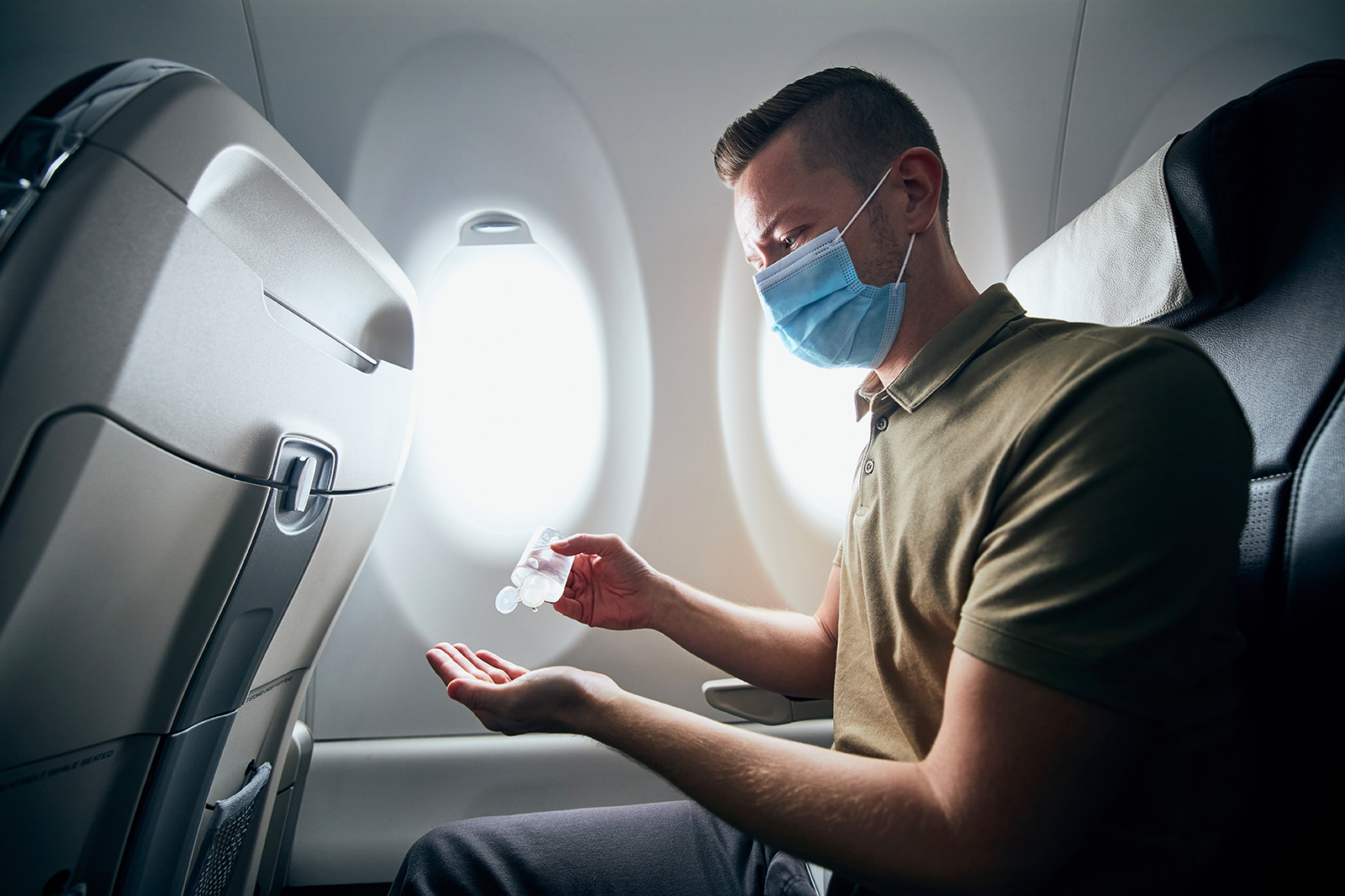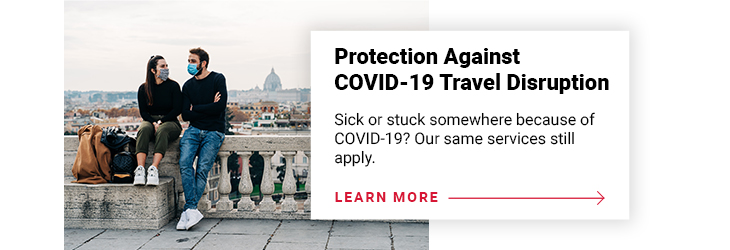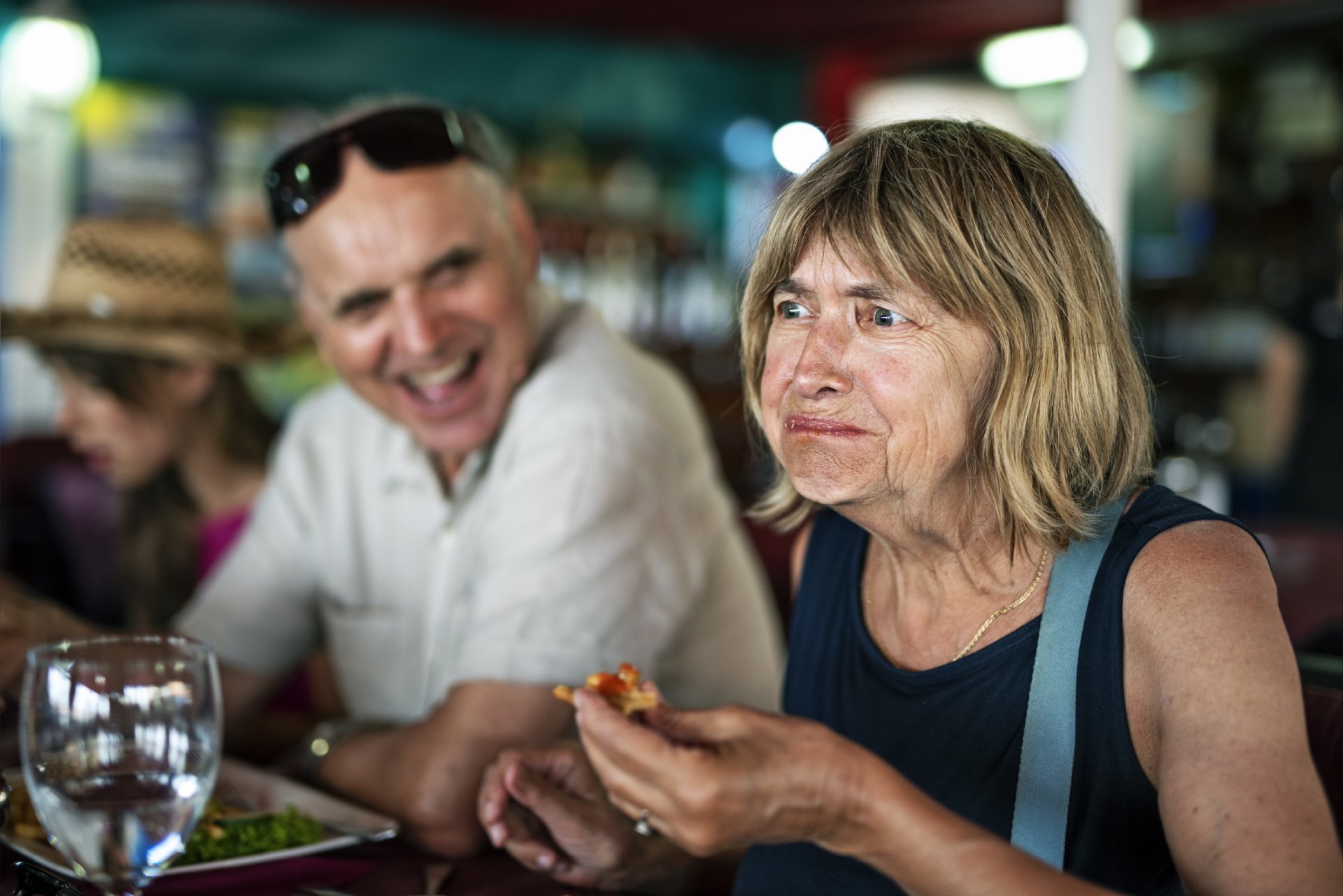The absolute worst time to catch that cold? While you are away from home. But there are plenty of ways to avoid illness abroad, and Global Rescue medical experts have put together a list of seven tips to help you stay healthy when traveling.
Adults get an average of two to three colds a year. Children have six to ten colds a year, and people older than age 60 usually have one cold annually.
What is one of the worst times to catch that cold? While you are away from home.
People who travel overseas have up to a 50% chance of suffering a travel-related illness, most of it minor. But a minor complaint can turn into a serious illness. For example, the most common travel illnesses are traveler’s diarrhea, E. coli diarrhea, malaria and influenza, according to Johns Hopkins Medicine.
It would be nice if you could prepare for every scenario — including an injury or an illness — that might happen during travel. But there’s no way you could plan for traveler’s diarrhea, a sprained ankle, a broken arm, altitude sickness, snow blindness, the common cold or even COVID-19 before your trip. (And even if you could, there’s no first aid kit that big.)
The fear of illness while traveling shouldn’t deter anyone from adventure and exploration. There are many steps you can take to stay healthy and avoid illness abroad. Global Rescue medical experts put together a list of seven tips to help you stay healthy when traveling.
Consult Your Doctor Prior to Traveling

All travel should start with a travel health consultation.
“A pre-travel doctor visit should check your overall health and ensure you are fit to travel,” said Jeff Weinstein, medical operations supervisor at Global Rescue. “This is especially important for older individuals with chronic medical conditions.”
Bring any health research with you to your visit: any illnesses currently in season in the area you’re traveling to and what vaccinations you might need prior to your trip.
“Consult your doctor about obtaining medications to mitigate the specific risks of the area you are traveling to, for example, malaria prophylaxis for a country with a higher risk,” Weinstein said. “Also ensure you have the appropriate vaccines: COVID-19, Yellow Fever, etc.”
Wash and Sanitize Your Hands Frequently and Thoroughly
Something as simple as washing and sanitizing your hands regularly can make the difference between a great, relaxing trip and a nightmare. It depends on the virus, but common cold symptoms usually show up two to three days after exposure. With the flu, you could be spreading germs 24 hours before you show symptoms.
The majority of health care professionals agree that good hand-washing with soap and water is the best way to sanitize your hands and protect against germs. However, if you are in a place where you cannot wash your hands, hand sanitizer is a good alternative. If you are going to be using hand sanitizer, make sure it has at least a 60% alcohol content or it may not be as effective as desired.
Weinstein also recommends sanitizing frequently used devices such as cell phones, laptops and keyboards. “Try to stick to your normal shower routine as well,” he said. “Keeping yourself clean will reduce the risk of viruses and bacterial infection.”
Stay Active
It can be hard to find free time to work out and stay active while traveling. Luckily, there are little things you can do on the road to stay moving and maintain good circulation.
For long-distance travel — extended car, train, bus or plane trips — get up and walk around, exercise your legs and stay hydrated.
“Moving and getting up and walking during long periods of travel can get the blood moving and help to prevent deep vein thrombosis (DVT) or clots from forming, especially in the elderly or those with already compromised circulation,” Weinstein said.
Don’t forget to stretch before and after a physically demanding trek or activity.
“This can prevent injury and even help mitigate soreness and maintain mobility,” Weinstein said. “Stretching is a great idea for travelers who aren’t normally as active, for example, warming up your muscles before walking for a longer period of time than you usually do.”
Stay Hydrated
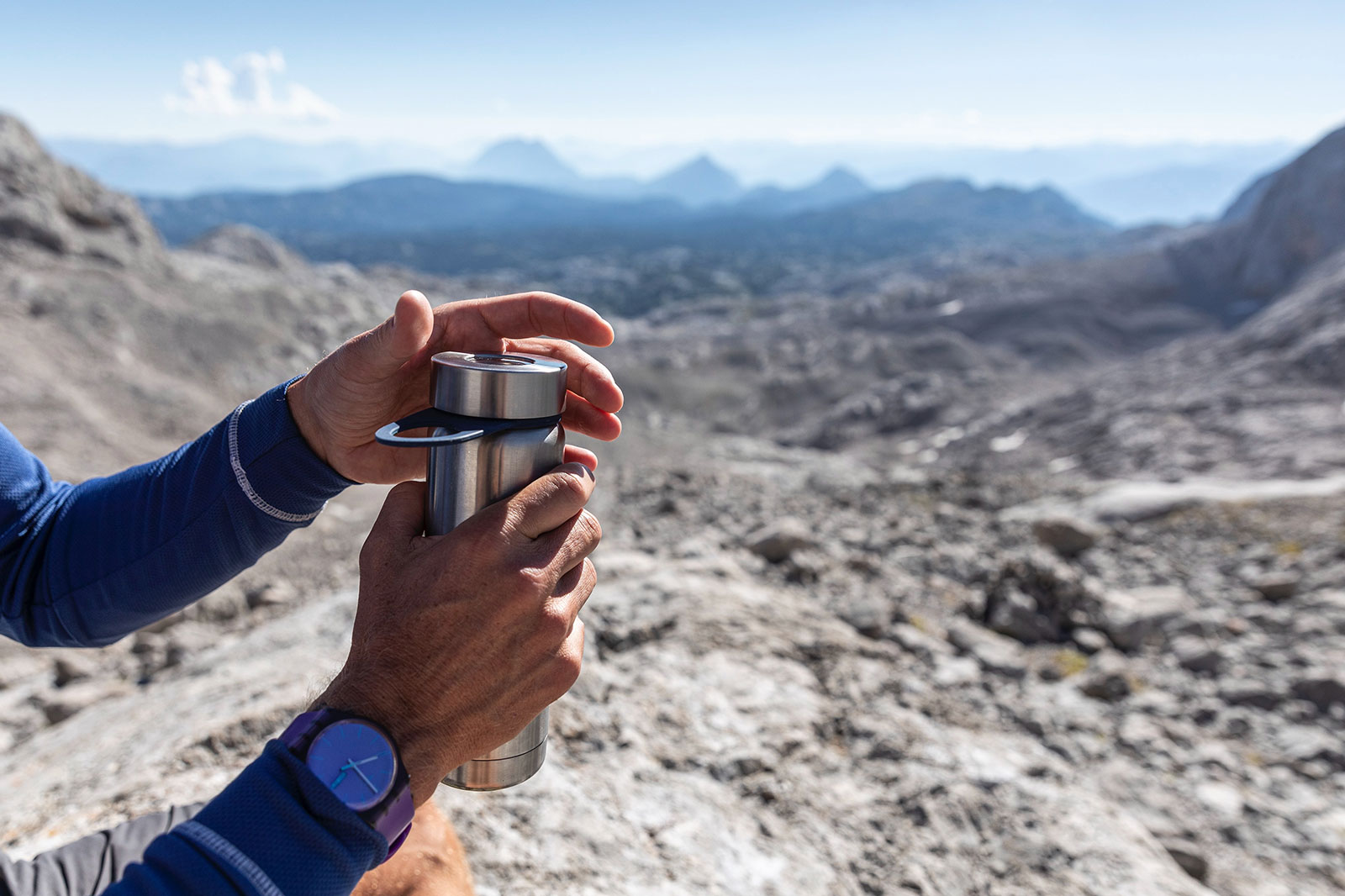
Stay hydrated throughout travel is important — and key for air travel or when climbing, hiking or exploring at an altitude. It’s also important during warm weather and extreme heat.
“Replace fluid and electrolytes, especially during strenuous activity,” Weinstein said. The same is true for traveler’s diarrhea or any GI issues: replacing fluid and electrolytes can help you avoid a larger medical issue.
Experts suggest drinking at regular intervals, avoiding sugary drinks and alcohol, and trying coconut water for the extra electrolytes.
Get Plenty of Sleep
Your sleep patterns may be off schedule during a trip. It’s important to make sure you get enough sleep.
“A lack of sleep can impede decision-making capabilities and predispose you to illnesses,” Weinstein said. “When you’re traveling, you are also often enclosed in small spaces, such as planes or busses, with a lot of other people — exposing you to illnesses others might be carrying.”
If you find yourself jet-lagged and unable to adjust to the new time zone, avoid alcohol and caffeine, which disrupt sleep. Johns Hopkins Medicine suggests syncing up with the local schedule as best as you can, but follow the two-day rule: if your trip is less than two days, keep to your normal schedule.
Each traveler has his or her own preferred ways of dealing with jet lag and not all methods will work for everyone. Try what works best for you — even if it means attempting to adjust your sleep patterns before embarking on your journey.
Remember a First Aid Kit
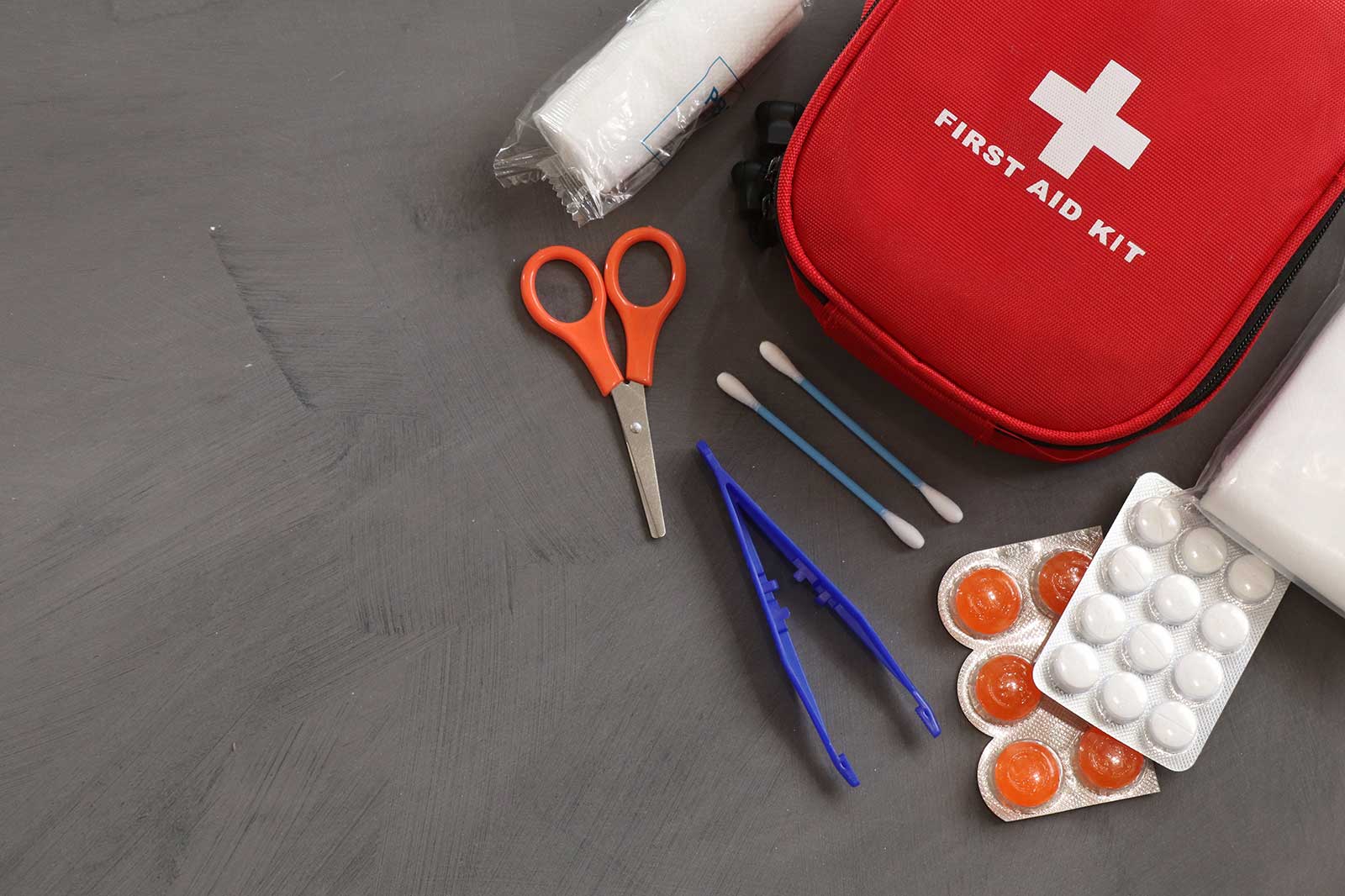
Bring a first aid kit, tailored to your activities and your destination, with you when you travel. A minor injury, like a blister, could turn in to a major issue — an infection or even sepsis. Having what you need on hand, even if it is a Band-Aid or moleskin, might make a big difference.
Don’t Neglect Your Mental Health
Make time for meditation, relaxation, nature walks — whatever makes you happy. If you don’t travel often, you may get stressed during your trip, such as being on time for your flight or navigating traffic in a new location. Adjust your itinerary so you’re not always on the go.
Global Rescue memberships include personalized advisory services, 24/7/365 emergency assistance and evacuation services at no additional cost to you. Learn more about the benefits of a travel membership.

